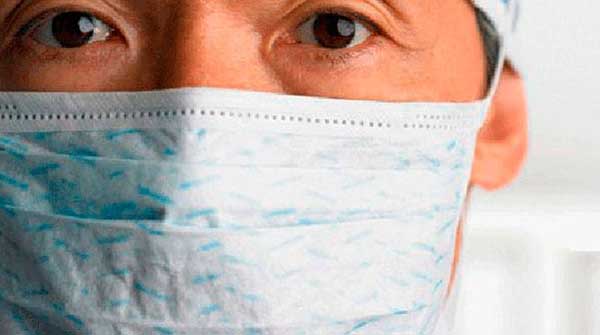Foreign-trained medical professionals could help ease the pressure
Canada’s medical system is quickly becoming a disaster area and a tragedy. There are not enough family physicians to provide primary health care. Walk-in clinics were supposed to meet this need, but many are no longer taking appointments because their load of registered patients already exceeds what their limited staff can handle.
Emergency rooms, often the only access to medical care, are overwhelmed, understaffed enough to deal with real emergencies, let alone the simply urgent and painful cases that are there for lack of alternatives. Some ERs have reduced hours or closed completely. There are far too many cases of people dying in emergency rooms while waiting for care or shortly after leaving the emergency because they were told it would be hours before a doctor could see them.
Beyond emergency rooms, hospitals lack the capacity to cope with an aging population, the parade of viruses affecting young and old, and the long waiting lists for necessary surgeries and treatments that have existed for before the pandemic. Wait times in Canada are at an all-time high, with a median time from referral to treatment of six months, according to The Economist.
There are many reasons why our health care system has deteriorated and no longer meets the needs of Canadians. Government funding levels are one, and attracting and retaining enough staff is another.
The good news? The powers that be are finally starting to talk about doing something about the problem. While our governments have always said the right thing about health care delivery, they have rarely followed through with action. The situation has now deteriorated to the point that it can no longer be ignored or passed on with words. And we’re starting to see some action.
- Governments at all levels are beginning to work together to invest more money in health care.
- Nurse practitioners provide primary care.
- Pharmacists will now be able to dispense certain prescriptions as people without access to doctors have been unable to obtain their medicines.
- It is becoming easier, faster and cheaper for internationally trained professionals (including Canadians who have studied abroad) to practice their profession in Canada.
- At least one new medical school has been announced.
These are all good things and certainly a step in the right direction. However, they are not enough to deal with current realities: Turning dollars into hospital beds takes time and there are some things only doctors can do, like make difficult diagnoses.
Ongoing incremental changes to recognize internationally trained nurses and doctors in Canada will not produce the number of doctors and nurses needed to meet current shortages, let alone the growing number of vacancies caused by professional exhausted and exhausted leaving the estate. And it will be about a decade before the new medical school transforms our doctors.
We can increase the number of qualified health professionals in Canada in a relatively short time by treating graduates from foreign medical schools as equivalent to graduates from Canadian schools.
Of course, recognition of international graduates in Canada would require that their medical schools and curricula be inspected and approved by professionals. Schools teaching in English or French – the United States, Britain, France and other English and French-speaking countries – should be considered first, as their graduates would meet Canadian language requirements. Graduates from schools in other countries should demonstrate knowledge of at least one of Canada’s official languages.
A thorough examination system should be put in place to ensure that graduates of foreign medical schools have the qualifications they claim. Such a system should take advantage of modern communication and technology so that decisions can be made in a timely manner. All concerned should be aware that taking excessive time and erecting unnecessary roadblocks harms Canadians in need of health care and could cost them their lives.
Identifying world-class medical schools is not difficult and could be done quickly. This would give us the flexibility to implement other solutions to our medical shortages that would benefit the health of Canadians.
Maybe then we could brag about our health care system again.
dr. Roslyn Kunin is president of the Vancouver Institute and past president of the Vancouver Stock Exchange, WorkSafe BC and Haida Enterprise Corporation. She has also served on the boards of the Business Development Bank of Canada (BDC) and the National Statistics Council.
For maintenance requests, Click here.
The opinions expressed by our columnists and contributors are their own and do not inherently or expressly reflect the views of our publication.
© Troy Media
Troy Media is an editorial content provider for news outlets and its own hosted community media across Canada.

“Travel aficionado. Twitter scholar. Writer. Extreme coffee guru. Evil pop culture fanatic.”
